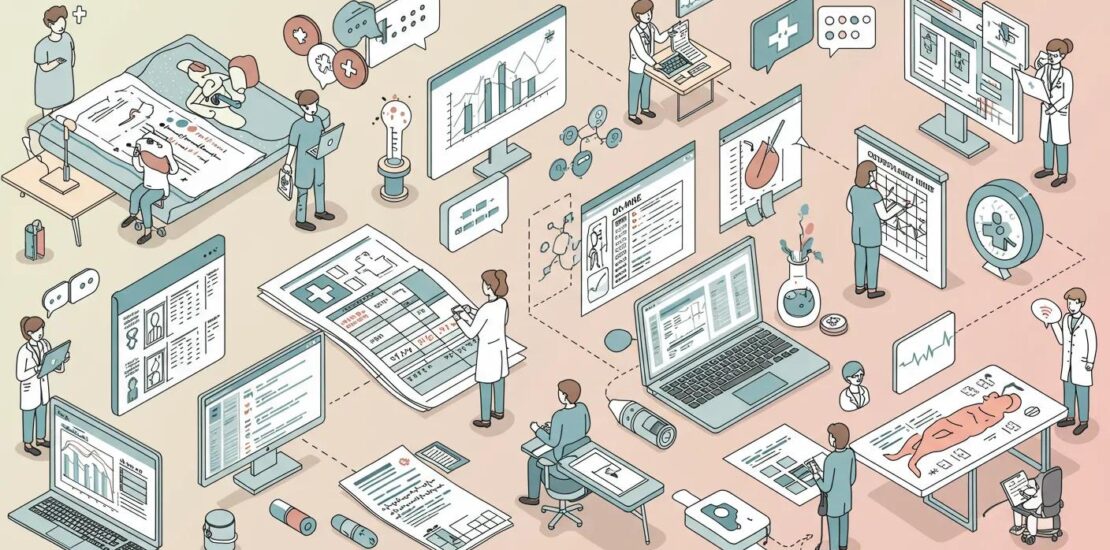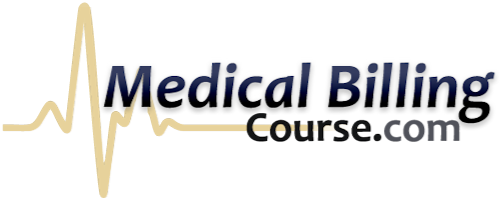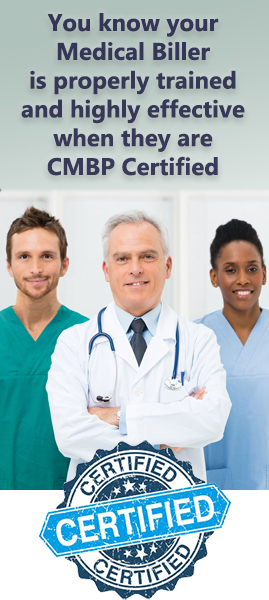- 11/13/2025
- Posted by: Medical Billing Course
- Category: Medical Billing Certification

Mastering Medical Billing and Coding: Your Gateway to a Thriving Healthcare Career
In the dynamic healthcare landscape, medical billing and coding professionals, though performing distinct functions, are the crucial link between clinical care and financial reimbursement. Their combined expertise ensures smooth operations, accurate patient records, and the financial health of the system. This guide explores this vital profession, pathways to success, the impact of certification, and the promising future awaiting skilled individuals. The complexity of the U.S. healthcare system, with its myriad insurance plans, regulatory requirements, and medical procedures, makes these roles indispensable. They are the unsung heroes who translate the intricate language of medicine into a standardized format, ensuring that healthcare providers are compensated fairly for their services and that patients’ medical histories are accurately documented for future care and public health initiatives. The intricate world of medical billing and coding, bridging patient care with financial operations.
“The precision required in medical billing and coding isn’t just about financial transactions; it’s about ensuring every patient’s health journey is accurately documented and every provider’s service is justly recognized. It’s the backbone of a functional healthcare system.” – Tri Smith, Instructor, MedicalBillingCourse.com.
The Foundation of Medical Billing and Coding: A Critical Overview
Medical billing and coding translate healthcare services, diagnoses, and procedures into universal alphanumeric codes (ICD-10-CM, CPT, HCPCS Level II) for insurance claims. While distinct functions, medical coders and billers work in close collaboration. Coders meticulously review patient records to assign correct codes, ensuring clinical accuracy, while billers manage the entire financial cycle, from claim submission to appeals and patient invoicing, ensuring financial accuracy and timely reimbursement. This integrated approach ensures timely and accurate payment for providers, vital for financial stability. Beyond finance, these codes are critical for public health tracking, research, and statistical analysis. The field demands precision, medical terminology knowledge, and compliance with regulations like HIPAA. The profession has evolved from manual entries to Electronic Health Record (EHR) systems and AI tools, requiring adaptability to ongoing technological and regulatory changes.
To delve deeper, the three primary coding systems are:
- ICD-10-CM (International Classification of Diseases, 10th Revision, Clinical Modification): Used to code diagnoses, symptoms, and causes of injury or disease. These codes are alphanumeric, ranging from 3 to 7 characters, and provide highly specific information crucial for medical necessity and epidemiological tracking. For example, a common cold might be J00, while a more complex condition like Type 2 Diabetes with ophthalmic complications might be E11.31.
- CPT (Current Procedural Terminology): Developed by the American Medical Association (AMA), CPT codes describe medical, surgical, and diagnostic services. These are 5-digit numeric codes primarily used for outpatient and physician office services. They detail the procedures performed, such as an office visit (e.g., 99213), a surgical procedure (e.g., 49505 for hernia repair), or a laboratory test.
- HCPCS Level II (Healthcare Common Procedure Coding System): This system is used to report services, procedures, and supplies not covered by CPT codes, particularly for Medicare and Medicaid patients. It includes codes for ambulance services, durable medical equipment, prosthetics, orthotics, and certain drugs. These codes are alphanumeric, starting with a letter followed by four digits (e.g., J codes for drugs, A codes for ambulance services).
The medical billing cycle is a complex, multi-step process that begins even before a patient sees a provider. It involves patient registration, insurance verification, charge capture, claim submission, remittance processing, denial management, and finally, patient billing and collections. Billers are instrumental at every stage, ensuring that claims are clean, accurate, and submitted promptly to maximize reimbursement and minimize delays. Their vigilance in managing denials and appeals directly impacts a healthcare facility’s revenue stream. Furthermore, strict adherence to regulations such as the Health Insurance Portability and Accountability Act (HIPAA) is paramount, protecting patient privacy and ensuring ethical billing practices. The continuous evolution of healthcare laws and payment models means professionals must engage in ongoing education to remain compliant and effective.
Navigating the Landscape of the Certified Professional Biller (CPB) Certification
Our curriculum prepares you for the top industry credential, aligning with competencies tested in the recognized Certified Professional Biller (CPB) certification exam. This offers a direct route to achieving your CPB certification, enhancing your professional standing.

Charting your course through the world of medical billing certification.
Professional certification is a powerful testament to your expertise and commitment. The Certified Professional Biller (CPB) credential, which our program prepares you for, validates your skills to employers. This certification is not just a piece of paper; it signifies a commitment to excellence, a deep understanding of complex guidelines, and a dedication to ethical practice. It also often requires continuing education units (CEUs) to maintain, ensuring that certified professionals remain current with the latest industry changes, codes, and regulations.
- Certified Professional Biller (CPB): This certification focuses on the entire billing process, from insurance verification to denial management and accounts receivable. A CPB understands the intricacies of the revenue cycle and is crucial for optimizing financial performance.
Our curriculum meticulously covers every domain tested in the CPB exam, from medical terminology to advanced billing guidelines and compliance. This ensures graduates are fully equipped to pass their certification exam, bridging theoretical knowledge with practical expertise. By aligning our program with this industry benchmark, we provide a clear and direct path for our students to achieve professional recognition and secure rewarding positions in the healthcare sector.
Unpacking the Robust Job Outlook and Growth in Healthcare
The U.S. Bureau of Labor Statistics forecasts a robust 9% expansion in medical records and health information specialist positions between 2023 and 2033, driven by an aging demographic and escalating insurance regulations.

Projected job growth highlights a promising future for medical billing and coding professionals.
This 9% growth translates into approximately 29,000 new job openings. Key factors include:
- Aging Population: Increased demand for healthcare services means more billing and coding. As the baby boomer generation ages, the need for medical care, chronic disease management, and preventative services will continue to rise, directly impacting the volume of claims and records.
- Complex Regulatory Environment: Evolving healthcare laws and insurance rules require specialized compliance knowledge. Constant updates to coding guidelines, payer policies, and government mandates (like the No Surprises Act) necessitate skilled professionals who can navigate these complexities.
- Technological Advancements: EHRs and new technologies demand skilled professionals to manage and interpret digital data. The shift from paper to electronic records has created a need for experts proficient in various software systems and data management.
- Preventive Care: Growing emphasis on preventive care leads to more patient encounters and documentation. As healthcare shifts towards proactive wellness, the volume of routine visits, screenings, and health maintenance services increases, all requiring accurate coding and billing.
Roles are diverse, found in hospitals, physicians’ offices, outpatient surgery centers, long-term care facilities, and insurance companies. Remote work opportunities are also a significant and growing trend, offering flexibility and expanding the geographic reach of job seekers. This robust outlook, coupled with role flexibility, makes medical billing and coding an attractive career choice. Entry-level positions typically include Medical Coder, Medical Biller, or Claims Processor, with opportunities to advance to roles such as Reimbursement Specialist, Auditor, Compliance Officer, or even Educator. Salaries can vary based on location, experience, and certification, but generally, certified professionals with a few years of experience can expect to earn competitive wages, often ranging from $45,000 to $65,000 annually, with senior roles exceeding $70,000.
The Tangible Impact of Certification on Salary and Career Opportunities
Certified professionals, particularly those with the CPB credential, typically enjoy higher salaries and specialized career opportunities. Research indicates CPB credentials can lead to a 10–15% salary boost, and certified individuals are 30% more likely to be invited for interviews.
Certification acts as a catalyst for career advancement, leading to preferential hiring, faster promotions, and access to complex, higher-paying roles like senior biller, auditor, or compliance officer. Data consistently shows certified professionals earn more, with experienced individuals earning upwards of $60,000 to $80,000 or more. This financial advantage is a direct reflection of the value employers place on validated expertise and the reduced risk of errors or compliance issues that certified professionals bring.
The “30% more likely” statistic highlights certification’s competitive edge, acting as a powerful filter for recruiters and signaling a validated skill set. This opens doors to more interviews and better job offers, significantly shortening the job search process and improving the quality of opportunities available. Beyond initial hiring, certification often becomes a prerequisite for internal promotions and lateral moves into more specialized and lucrative areas within the healthcare industry.
Certification also unlocks opportunities in specialized areas:
- Auditing: Reviewing records for accuracy and compliance, identifying potential fraud or abuse, and ensuring proper reimbursement. Auditors play a critical role in maintaining the financial integrity of healthcare organizations.
- Compliance: Ensuring adherence to laws and regulations such as HIPAA, Stark Law, and Anti-Kickback Statute. Compliance officers develop and implement policies to prevent legal issues and protect the organization.
- Education and Training: Teaching new professionals or providing ongoing training to existing staff on coding updates, billing procedures, and regulatory changes. This role requires strong communication and pedagogical skills.
- Consulting: Advising providers on billing/coding optimization, revenue cycle management, and compliance strategies. Consultants often work independently or for consulting firms, offering their expertise to multiple clients.
- Revenue Cycle Management: Overseeing the entire financial process from patient registration to final payment, focusing on maximizing revenue and minimizing denials. This is a high-level strategic role that requires a comprehensive understanding of both billing and coding.
Investing in certification builds a resilient, high-earning career path, providing a clear return on investment through enhanced earning potential and expanded professional horizons.
Real-World Impact: Sarah’s Journey to a Thriving Career
“Before finding MedicalBillingCourse.com, I was stuck in a dead-end job, feeling unfulfilled and financially stressed. The idea of a remote career in healthcare seemed like a dream. The comprehensive curriculum and the support from instructors like Tri Smith gave me the confidence and knowledge I needed. After completing the program and earning my CPB certification, I landed a remote medical billing position within weeks. Now, I have the flexibility to work from home, a stable income, and a career I genuinely enjoy. It truly transformed my life.”
– Sarah L., Certified Medical Billing Professional
Essential Skills for Success in Medical Billing and Coding
Success hinges on specific skills, enabling professionals to navigate daily challenges and contribute effectively:
- Attention to Detail: Crucial for accuracy to prevent denials or legal issues. A single misplaced digit or incorrect modifier can lead to a rejected claim, costing providers significant revenue and delaying patient care.
- Analytical Skills: Interpreting complex records and applying coding guidelines. This involves dissecting physician notes, operative reports, and diagnostic test results to extract all relevant information for accurate code assignment.
- Medical Terminology and Anatomy: Fundamental for translating clinical information into codes. A deep understanding of body systems, diseases, procedures, and pharmacological terms is essential to correctly interpret medical documentation.
- Communication Skills: Essential for resolving discrepancies and collaborating with staff and payers. Professionals often need to query physicians for clarification, explain billing issues to patients, or negotiate with insurance companies.
- Technical Proficiency: Familiarity with EHR systems, billing software, and coding platforms. Proficiency in systems like Epic, Cerner, Meditech, or specialized billing software is increasingly vital for efficient workflow.
- Problem-Solving Abilities: Investigating denials, appealing decisions, and ensuring reimbursement. This requires critical thinking to identify the root cause of a denial and formulate an effective strategy for resolution.
- Ethical Conduct and Compliance: Adhering to HIPAA and other regulations. Maintaining patient confidentiality, preventing fraud and abuse, and ensuring all practices meet legal and ethical standards are non-negotiable.
- Time Management and Organization: Managing high volumes of claims and meeting deadlines. Professionals often handle hundreds of claims daily, requiring excellent organizational skills to prioritize tasks and ensure timely submission.
- Continuous Learning: Staying updated on new codes, regulations, and best practices. The healthcare landscape is constantly changing, necessitating ongoing education through workshops, webinars, and industry publications.
Developing these skills alongside certification creates a highly valuable professional, capable of adapting to the evolving demands of the healthcare industry and contributing significantly to their organization’s success.
The Role of Technology and Future Trends in Medical Billing and Coding
Technology continually shapes medical billing and coding, requiring adaptable professionals. Innovations bring efficiencies and new challenges:
- Electronic Health Records (EHRs): Revolutionized data recording; coders need proficiency in navigating these systems. EHRs streamline documentation, but also require coders to be adept at extracting relevant information from vast digital records, often across multiple tabs and sections.
- Computer-Assisted Coding (CAC): Uses natural language processing (NLP) to suggest codes, speeding up processes, but requires human review. While CAC tools can significantly increase efficiency by automatically identifying potential codes from clinical documentation, human oversight remains critical to ensure accuracy and compliance, especially for complex cases.
- Artificial Intelligence (AI) and Machine Learning (ML): Predicts denials, identifies errors, and automates tasks, necessitating human oversight. AI algorithms can analyze historical data to predict claim denials, flag potential coding errors before submission, and even automate routine coding tasks. This shifts the role of the human coder from data entry to a more analytical and auditing function.
- Blockchain Technology: Potential for enhanced security and transparency in records and claims. By creating an immutable, distributed ledger, blockchain could revolutionize how patient records are shared securely and how claims are processed, reducing fraud and improving data integrity.
- Telehealth and Remote Patient Monitoring: Introduced new coding and billing guidelines requiring updates. The rapid expansion of telehealth services, particularly during recent global health crises, necessitated the creation of new codes and modifiers, requiring billers and coders to quickly adapt to these emerging service delivery models.
- Data Analytics: Beyond individual claims, professionals are increasingly using data analytics tools to identify trends in denials, optimize revenue cycles, and improve overall financial performance. This involves understanding key performance indicators (KPIs) and leveraging data to make informed decisions.
These shifts evolve the role from purely data entry to one that is more analytical, interpretive, and compliance-focused. Professionals mastering new tools and critical thinking will thrive, requiring continuous development and a proactive approach to learning new technologies. The future of medical billing and coding lies in a synergistic relationship between human expertise and advanced technology, where professionals leverage tools to enhance their capabilities rather than being replaced by them.
Choosing the Right Training Program for Your Career
Selecting the right training program is critical for success. Key factors to consider:
- Curriculum Alignment: Explicitly aligns with the Certified Professional Biller (CPB) certification exam requirements. A strong program will detail how its coursework directly prepares you for specific sections of this exam, often including practice tests and exam review sessions.
- Instructor Qualifications: Certified professionals with real-world experience provide practical insights. Learning from instructors who have worked in the field brings invaluable practical knowledge and current industry perspectives that textbooks alone cannot provide.
- Hands-on Training: Offers practice with coding exercises, case studies, and simulated software. Practical application is crucial; look for programs that incorporate real-world scenarios, mock coding assignments, and exposure to industry-standard billing and EHR software.
- Career Services: Provides support for job searching, resume building, and interview preparation. A program that offers robust career support, including job placement assistance, networking opportunities, and interview coaching, can significantly boost your post-graduation employment prospects.
- Program Format and Flexibility: Choose online, in-person, or hybrid based on learning style and schedule. Consider whether a self-paced online program, a structured in-person class, or a blended approach best suits your lifestyle and learning preferences.
- Program Length and Cost: Evaluate duration and cost, prioritizing quality and value. While cost is a factor, prioritize the quality of education and the program’s success rate in preparing students for certification and employment over simply the lowest price.
- Reputation and Reviews: Research the institution’s reputation and student success rates. Look for testimonials, alumni success stories, and independent reviews to gauge the program’s effectiveness and student satisfaction.
A well-chosen program equips you with the necessary knowledge and resources to launch a successful and rewarding career, providing a solid foundation for both certification and long-term professional growth.
Conclusion: Your Path to a Rewarding Healthcare Career
Medical billing and coding offer a stable, in-demand, and rewarding career within the growing healthcare industry. Opportunities are abundant, driven by an aging population and complex regulations. Professional certification, specifically the Certified Professional Biller (CPB) credential, provides tangible benefits, including higher salaries and specialized roles, underscoring the value of quality education and credentials. As technology evolves, adaptability and continuous learning are key. By developing essential skills and choosing a certification-aligned training program, you can unlock a promising future. This profession combines intellectual challenge with the satisfaction of contributing to public health and community well-being.
Ready to Transform Your Future?
Don’t miss out on a career that offers stability, growth, and the chance to make a real difference in healthcare. Our programs are designed to equip you with the expertise and the Certified Professional Biller (CPB) credential employers demand.
Ready to Launch Your Medical Billing and Coding Career?
Discover how our expertly designed, CPB certification-aligned programs at medicalbillingcourse.com can equip you with the skills and credentials needed to thrive in this high-demand field. Take the first step towards a secure and rewarding future in healthcare.
About the Author
Tri Smith is an Instructor at MedicalBillingCourse.com, where he’s dedicated to helping students transform their futures through medical billing certification. With over five years of experience as an instructor, Tri takes immense pride in seeing graduates go on to land remote jobs, grow within healthcare offices, or launch their own successful billing businesses. His passion lies in helping students build meaningful, flexible careers in the dynamic healthcare field.

